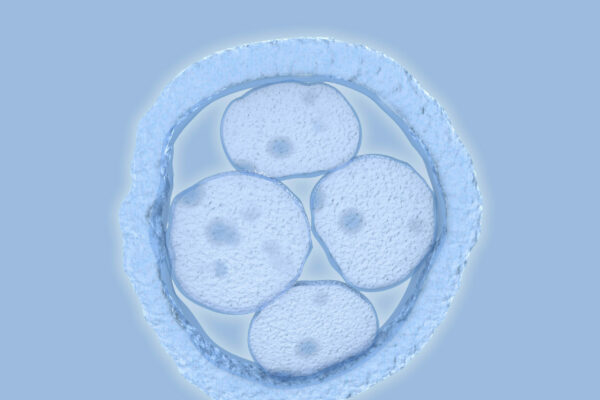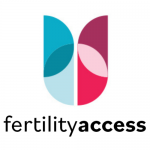What do you think about when you hear the word “infertility”? Unless you or a loved one has experienced infertility, you likely think about an older woman who has let her “biological clock” tick for too long and is now struggling to conceive. Not only is this media-driven narrative extremely insensitive, it is factually incorrect.
National Infertility Awareness Week: April 22, April 28
During National Infertility Awareness Week, we can #FlipTheScript on society’s image of infertility. For example, did you know what 1 in 8 couples report having trouble getting pregnant or sustaining a pregnancy? Or that male infertility is on the rise in western nations? Infertility is an issue that is likely to affect you or someone you care about.
Mara & Jason’s Story: Our Patients Open Up About Donor Eggs and IVF
As Minnesota’s premiere provider of infertility treatment, we work closely with couples who have been touched by infertility. One couple, Mara and Jason, have graciously agreed to share their perspective to raise awareness.
Who was your support system during your fertility journey?
Mara: My support team was made up of lots of different people, thank goodness! My friends were truly the most important support team that I have next to my husband. A few of them have gone through IVF or other infertility struggles so that was helpful. They were compassionate, supportive and understanding when I needed space or a hug and conversation. I had known quite a few people prior to trying to conceive that had gone through it and they were great resource for information on the process, and seeing them with their happy families kept me hopeful.
Some describe the infertility journey as never-ending. Are there things that have been difficult to deal with post-IVF?
Mara: There are a few things, but I try not to focus on them too much. My children bring me such immense joy, and I have a belief system that tells me if you deal with everything with integrity and honesty, it will turn out OK.
Sometimes people ask why they (my children) don’t look like me or comment on how much they look like their Dad, and I feel a twinge. Or, someone will ask me if they are “natural” and when I say “IVF” they give me a look like I cheated. Those sorts of things happen but rarely bother me. Maybe if I miss yoga that week I’ll tense up, but people usually mean well even though they say things that can be hurtful.
We will tell our kids that we used donor eggs age appropriately as they develop. We NEVER want it to be a secret or a surprise to them. This is their story more than it is mine and their Dad’s, so they get to know all of it and we will be there to help them navigate and process it however they need to. I didn’t know or meet my biological Dad until I was 20 and it really has had minimal effect on who I believe myself to be, and I hope it will be the same way for our kids.
Is there anything you wish the general public was more aware of in terms of infertility and fertility treatments?
Mara: We all are willing to take different paths and different chances to make our families. I would also want them to know that my babies are 100 percent my babies. Donor egg, donor sperm, adoption, or your own biological children, a family is a family. Love is what is needed and what is given; that is more important than any biological attachment. Although my kids are pretty cute thanks to their donor mom and biological Dad, so biology does play its part!
I would also like the general public to know how lonely infertility is. How sad it is to want a family and not be able to make it happen. To be kind and thoughtful before you open your mouth. Some people would love to have a child and that isn’t in the cards; those people need our empathy and compassion, not our questions on why.
What is the IVF process like from a partner’s perspective?
Jason: The hardest part is feeling helpless or like a bystander. There’s just not a lot you can control. All you can really do is be there for your partner, be a good listener, and be an active participant when there are decisions to be made.
Was there anyone you leaned on for support while providing support to Mara?
Jason: Especially during the early attempts, I did see a therapist to work through the stress and ups-and-downs. Honestly, outside of that I didn’t have a strong support network, so it was important to have a professional to talk to. There’s a lot of wait-and-see involved in the IVF process, and at times you don’t want to talk about it with friends and family in case things don’t go well. I also had a very supportive boss who allowed me flexibility to go to doctor’s appointments. That was also really important.
What fears or concerns did you have about the process?
Jason: The biggest fear is just that it won’t work. IVF is such as big commitment, financially, emotionally, your time and energy. You end up, or need to, put a lot of life on hold. The thought that you could put all of that into it, for several years, and not end up where you want…it’s terrifying.
Tell Us Your Story
National Infertility Awareness Week comes and goes, but the real issue of infertility remains for those who are struggling to conceive.
At CRM, we know that every story is unique, which is why we define success as discovering the best path for each patient to build their family. That journey toward conception can begin today, by contacting usto learn about the options that are available to you.






